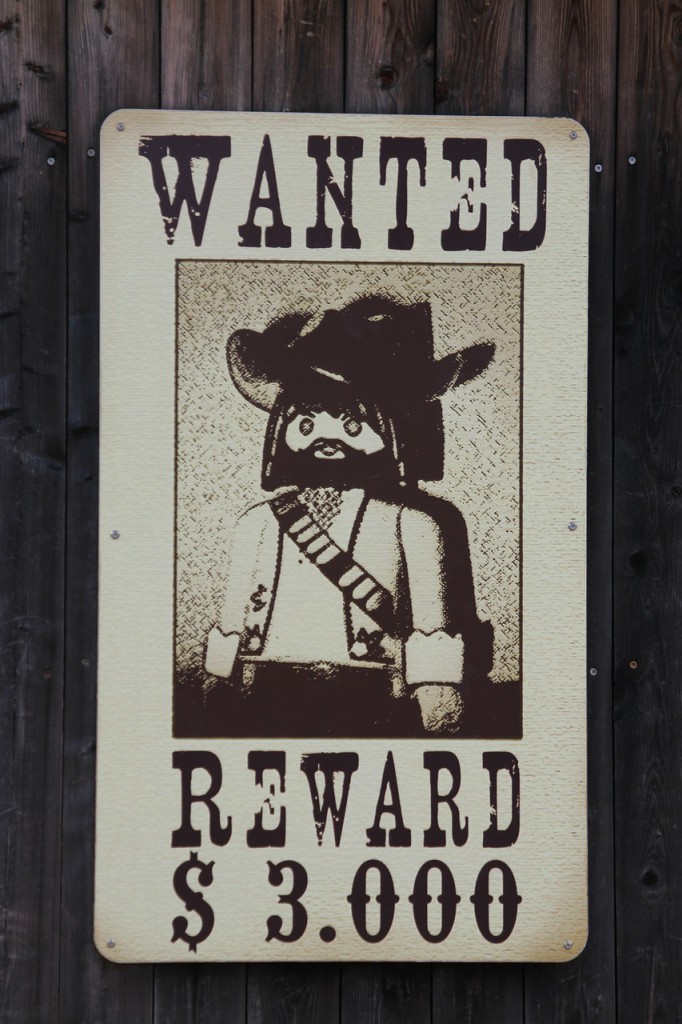
02.08.15 am – Mark Day – Our Place
02.08.15 pm – Jerry Sturgill – Things God’s Children Should Never Worry About
Wanted posters display the faces of suspects at large who have committed serious crimes and have evaded arrest. The authorities are looking to the public to help in finding these men who have made themselves scarce in order to avoid punishment.
 But there is another kind of wanted man in our society. Righteous individuals are much more scarce than criminals. We read in Jeremiah 5:1, “Run ye to and fro through the streets of Jerusalem, and see now, and know, and seek in the broad places thereof, if ye can find a man, if there be any that executeth judgment, that seeketh the truth; and I will pardon it.” Like Jerusalem in Jeremiah’s day, our society is wanting in righteous people who are fair in judgment and seek the truth. The people of God have always been a minority. Jesus said in Matthew 7:13-14, “Enter ye in at the strait gate: for wide is the gate, and broad is the way, that leadeth to destruction, and many there be which go in thereat: Because strait is the gate, and narrow is the way, which leadeth unto life, and few there be that find it.” But we know that even though we are outnumbered, we are more than conquerors because we are on God’s side (Romans 8:31-37).
But there is another kind of wanted man in our society. Righteous individuals are much more scarce than criminals. We read in Jeremiah 5:1, “Run ye to and fro through the streets of Jerusalem, and see now, and know, and seek in the broad places thereof, if ye can find a man, if there be any that executeth judgment, that seeketh the truth; and I will pardon it.” Like Jerusalem in Jeremiah’s day, our society is wanting in righteous people who are fair in judgment and seek the truth. The people of God have always been a minority. Jesus said in Matthew 7:13-14, “Enter ye in at the strait gate: for wide is the gate, and broad is the way, that leadeth to destruction, and many there be which go in thereat: Because strait is the gate, and narrow is the way, which leadeth unto life, and few there be that find it.” But we know that even though we are outnumbered, we are more than conquerors because we are on God’s side (Romans 8:31-37).
The qualities of the wanted man are described in Jeremiah 5:1 as he who executes judgment and seeks truth. To execute judgment is to be just in one’s dealings with others. How many today truly put in practice the golden rule of Matthew 7:12? Those who are guilty of fraud are not fair to others, but are robbing for personal gain. Those who demand that someone else should do something they themselves will not do are likewise unfair (Matthew 23:4). The wanted man also seeks truth. He hates deception and falsehood. Instead of misinterpreting the facts so that he seems innocent, the wanted man will accept the truth even if it means he is wrong and must make changes. How very few are willing to do that today!
Finally, instead of being a blight on society as those on the wanted posters often are, the wanted man of Jeremiah 5:1 is a great value to society. God is saying to Jeremiah that He would spare Jerusalem from destruction if just one man could be found who seeks the truth. Much like God’s conversation with Abraham about the fate of Sodom in Genesis 18, the precept God is communicating is that He often spares cities and nations because of their righteous inhabitants. While the wanted poster may display the face of an individual who has done much evil, we also know that one individual has potential to do much good. If one Christian is zealous for the Lord, he can influence others to be as well. The prayer of one righteous man may result in God’s mercy upon many (James 5:16-18). One good man who is willing to stand up for God has a wonderful influence on others who are watching.
What is needed most in our world is not better technology, better food, better clothing, better medicines, or even better laws. What is needed most is better people. We pray that God will raise up such individuals. The wanted man is the godly man who puts the Lord first and is a blessing to those around him.
-Mark Day
02.01.15 am – Jerry Sturgill – An Unnecessary Death
02.01.15 pm – Mark Day – Worship God
Scripture Reading- Will Scott: Rev. 19:1-10
It is believed by this student of the Bible that some of the conversion accounts in the book of Acts contain the entire Plan of Salvation in both inferred and direct statements. Last month we looked at the Conversion of the Pentecostians in Acts 2. In this study we will examine the Conversion of Saul (Paul) in Acts 9. As the chapter begins Saul is persecuting the disciples of the Lord indicating that he had heard at least some of the teaching of “that way” (9:2). As the light shined around him and in response to Jesus’ question, Saul asks “Who art thou, Lord?’ Saul is addressing the one in front of him with respect. The response comes to Saul “I am Jesus whom thou persecutest…” Upon hearing that, the Biblical record says that Saul was “trembling and astonished.” This is surely belief on the part of Saul. Saul must have thought “These disciples of the one called Christ had been right. He had risen from the grave. He was alive. How could Saul have missed it?” In spite of all the eye and ear witness testimony Saul had been given he had persecuted these people and even worse Jesus said when Saul had persecuted them, he had persecuted Jesus. He had thought he “ought to do many things contrary to the name of Jesus of Nazareth” (Acts 26:9). He had been sincere, but had been sincerely wrong.

The next words recorded from Saul were “Lord, what wilt thou have me to do?” Saul this time undoubtedly uses the word “Lord” in an entirely different sense than he had previously. Before Saul had addressed an unknown stranger and had spoken respectfully. Now in the presence of the risen Messiah he uses the term in the sense of one with authority, my Lord and Master. This would indicate confession at this point, hard to miss with the resurrected Son of God standing before one. Saul additionally says “what wilt thou have me to do?” This indicates Saul’s readiness to repent, to change his will to the will of the Savior.
Before proceeding further I wish to make the following point. It is not my intention to imply that it would take a personal appearance of Jesus Christ today in order to bring about belief, confession, and repentance. The purpose of Jesus’ personal appearance to Saul was to qualify him as the last apostle of Christ, see Acts 1:22. In the other conversion accounts in Acts there is no personal appearance of Jesus to bring about conviction or conversion and in fact today we have even more compelling evidence of the Gospel message in the inspired words of the New Testament. Saul was convicted on the road to Damascus by the evidence before him confirming the testimony he had heard. Today we have the evidence of the multiple miracles and testimony of multiple eye and ear witnesses. See John 20:30-31.
Saul in hearing, believing, repenting, and confessing on the road to Damascus had surely been convicted, but he was not yet converted. Jesus said for Saul to “Arise, and go into the city, and it shall be told thee what thou must do.” There was something more, a must, a requirement. Saul spends three days fasting and praying (again, penitence) and the Lord sends a man named Ananias to Saul and he “arose, and was baptized.” (9:18)
In this account we have the entire plan of salvation presented that all accountable people are required to obey to have their sins forgiven.
Hear, Believe, Repent, Confess, and Be Baptized for the forgiveness of sins.
– Jerry Sturgill